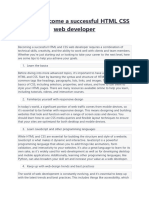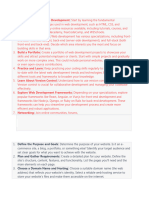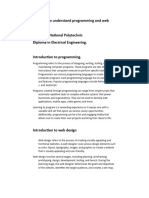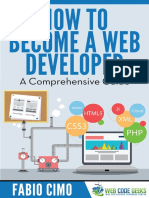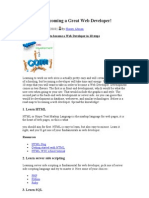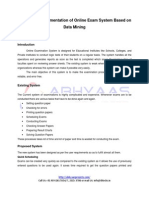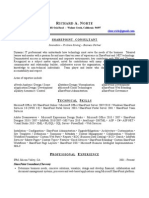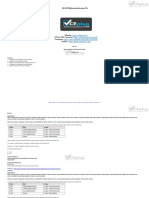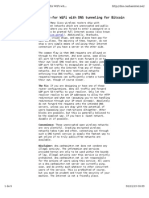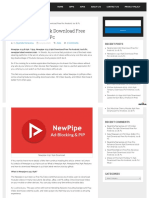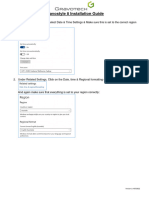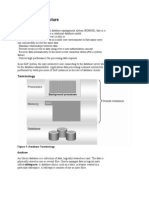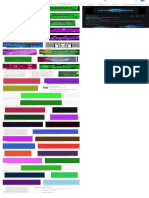0% found this document useful (0 votes)
49 views4 pagesHow To Become An Expert in HTML CSS
The document outlines a step-by-step guide to becoming an expert in HTML and CSS, including learning the basics, practicing regularly through projects, utilizing online resources, engaging with coding communities, building responsive websites, learning version control with Git and GitHub, exploring advanced topics, staying updated, teaching others, and seeking feedback through code reviews.
Uploaded by
mariagemariagee5Copyright
© © All Rights Reserved
We take content rights seriously. If you suspect this is your content, claim it here.
Available Formats
Download as PDF, TXT or read online on Scribd
0% found this document useful (0 votes)
49 views4 pagesHow To Become An Expert in HTML CSS
The document outlines a step-by-step guide to becoming an expert in HTML and CSS, including learning the basics, practicing regularly through projects, utilizing online resources, engaging with coding communities, building responsive websites, learning version control with Git and GitHub, exploring advanced topics, staying updated, teaching others, and seeking feedback through code reviews.
Uploaded by
mariagemariagee5Copyright
© © All Rights Reserved
We take content rights seriously. If you suspect this is your content, claim it here.
Available Formats
Download as PDF, TXT or read online on Scribd
/ 4
